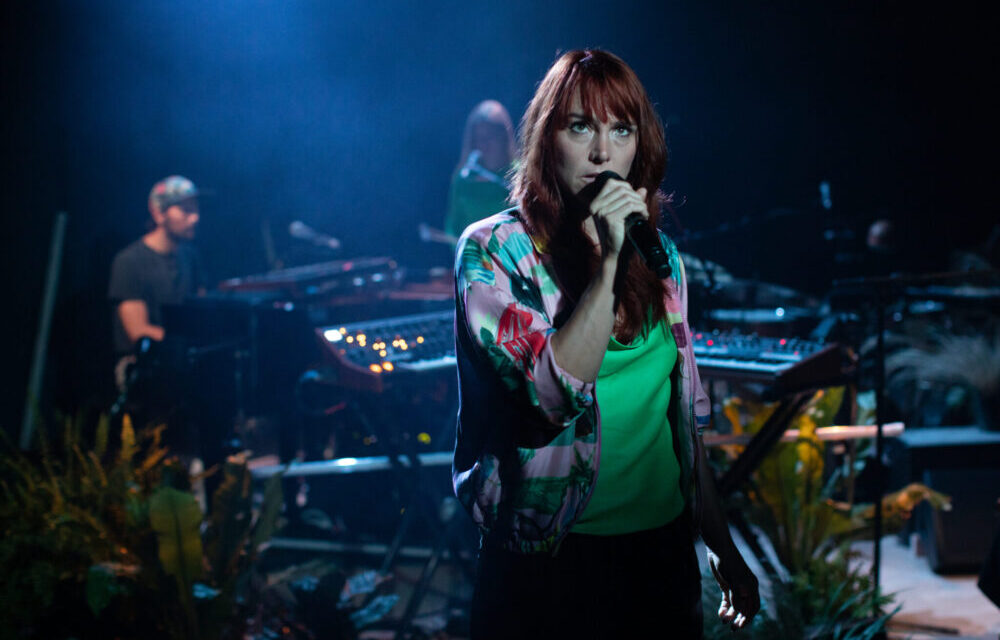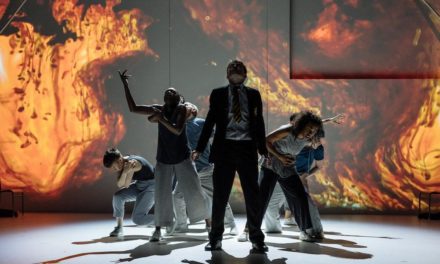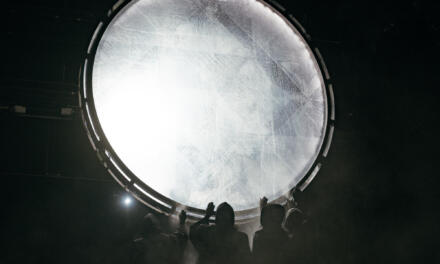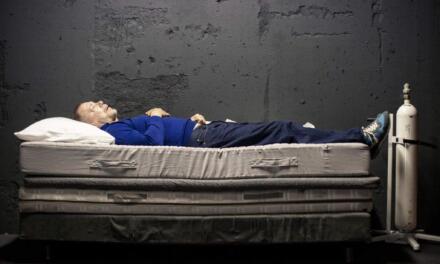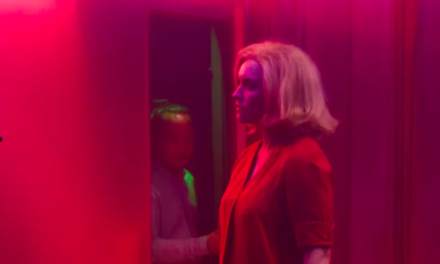As its name suggests, The Song Project is more a collaborative experiment than a conventional piece of theatre. Co-initiated by the Royal Court’s Associate Designer Chloe Lamford and the Dutch singer-songwriter Wende in partnership with composer Isobel Waller-Bridge and choreographer Imogen Knight, the project also involves five playwrights, three musicians, two designers and one engineer. Prompted by the simple idea that ‘some things can only be sung’, the creators set out to crowdsource from within this pool of artists (and prospective audiences) a kind of communal event that happens to work also as a post-pandemic ritual of rebirth and regeneration.
Laid out as a circular installation in the Upstairs studio, made of a range of musical instruments and carefully chosen foliage, it’s hard to imagine that the piece was originally intended for the Jerwood Theatre Downstairs and was only moved here at the last moment due to flooding. The intimacy gained by this unexpected relocation seems a key ingredient in the evening that begins a bit like cabaret but then proceeds to sequentially hit moments of musical, rock gig, church gospel and war epic only to come back to the here and now of this particular theatre space, reminding us of its irrepressible shape-shifting magic. At the center of it all – or more accurately circling seductively around the periphery of the installation for most of the show before gaining center stage in its finale – is the singer Wende, reinventing the idea of a diva for the 21st century. Rather than sexy sequins, black satin or velvet one might have come to expect from a music gig at a theatre, she is wearing what looks like regular street attire, mixing pinks, blacks and greens, with flashes of a wild feline staring behind the foliage of her bomber jacket print. In the case of Wende (comparable variously to Edith Piaf, P.J.Harvey and Tori Amos), the diva material is seemingly all in the voice, unfolding gradually, layer by more unexpectedly amazing layer throughout the evening. In retrospect I realize that her quiet magnetism is in her body too, drawing the eye of the audience around the stage relentlessly towards a meaningful closure. The greatest proof of Wende’s stardom however is the way in which her whole performance consistently supports, displays, co-opts and celebrates her fellow musicians too – Nils Davidse, Louise Anna Duggan and Midori Jaeger – as they industriously circulate around each other and their instruments built into the set.
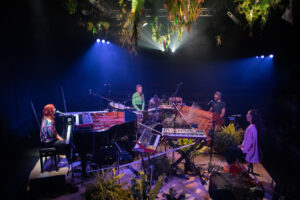
“The Song-Project.” PC: Ali Wright.
And what about the things that can only be sung? Though mostly drawn from female lived experience the content of the show is by no means limited to female issues and concerns. On the contrary, the piece positions itself as inclusive on a number of fronts, including in its deliberate distribution of irresistibly fun, gender-specific chorus lines to all members of the audience. Talking of which, there is much fun and games to be had in this show whose songs are authored by playwrights. Kooky characters lurk behind the song lyrics; gripping feelings sneak upon you from the carefully crafted prosodies tumbling out of their verses; aided by Waller-Bridge’s music, the words possess the power to transport across landscapes and distances, cultures and memories. It’s fair to say that only in the theatre are you likely to come across songs that make words such as ‘complexity’ sound perfectly at home.
Five versatile playwrights – E.V. Crowe, Sabrina Mahfouz, Somalia Nonyé Seaton, Stef Smith, Debris Stevenson – all previously featured at the Royal Court, offer 18 numbers between them, some co-authored collaboratively, to fill 90 minutes of thought-provoking, deeply felt, largely participatory entertainment. Though at times this might feel a little too excessive to take in effectively, perhaps that is the point of post-pandemic theatre: stockpile on your live performance experience while you can. And if you happen to miss it this time, The Song Project will be back at the Jerwood Theatre Downstairs in June 2022 for that originally planned set up.
This post was written by the author in their personal capacity.The opinions expressed in this article are the author’s own and do not reflect the view of The Theatre Times, their staff or collaborators.
This post was written by Duška Radosavljević.
The views expressed here belong to the author and do not necessarily reflect our views and opinions.

